July 5, 2019
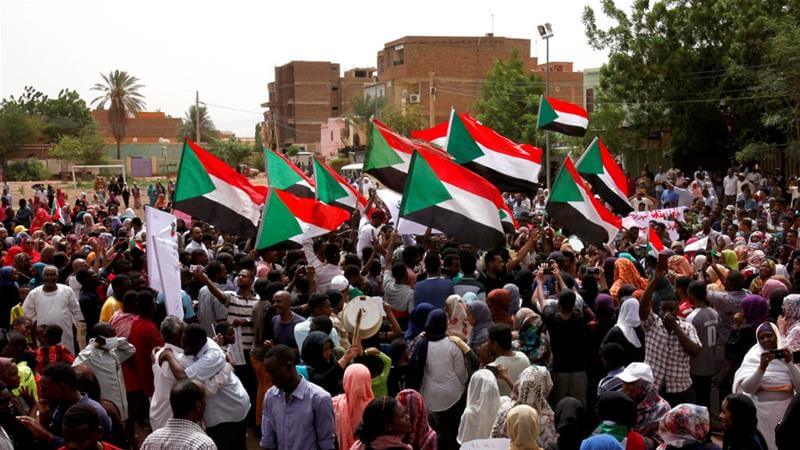

According to a report from SBS-AAP, Cuba is considering the use of cryptocurrency in order to bolster its finances. The country’s Communist government announced on state-run TV that it would potentially use crypto as part of a package aimed to boost incomes for as much as a quarter of Cubans and assist with market reforms. The announcement comes in the wake of new sanctions from the United States and Brazil on Cuba this week with the hopes to further cripple Cuba’s ally Venezuela. Venezuela implemented its own form of cryptocurrency last year to curb hyperinflation and economic catastrophe.

In a letter to EU High Representative Federica Mogherini and foreign ministers, Human Rights Watch argued that the EU should impose targeted sanctions against high-level Nicaraguan officials implicated in gross human rights violations and condition financial support to Nicaragua’s National Police. The European Union should increase pressure on the Nicaraguan government to curb human rights violations by police and other officials in the wake of anti-government protests, The crackdown on anti-government protests by Nicaragua’s National Police and armed pro-government groups that began in April 2018 led to more than 300 deaths and 2,000 people injured. The HMR wasn’t the only organization to condemn the gross human rights violations, The Organization of American States (OAS) General Assembly adopted a joint resolution condemning the Nicaraguan government on Wednesday.

Australian Prime Minister Scott Morrison has said that Alek Sigley is “released and safe” after being detained by the North Norean government. Last week, his family and friends lost contact with him, sparking fears he might have been detained, and these concerns were true. Sigley was the only “Austrialian living in North Korea” where he was pursuing a master’s degree and running a tourism business in Pyongyang. His release was said to comes after a meeting between officials from the Swedish embassy in Pyongyang and the North Korean government. Australia does not have its own embassy in the North Korean capital, but Sweden does, and often acts as a liaison for countries. It is not known why the student, a fluent Korean speaker, had been detained.

The U.N. envoy for Myanmar said Monday that progress on alleviating the crisis that led more than 720,000 Rohingya Muslims to flee to neighboring Bangladesh has been slow and if there is no action it will be time to “ring the alarm bell.” Special UN Envoy on Myanmar Christine Schraner Burgener, said that there have been “little changes on the ground” to the situation for Rohingya Muslims citing discrimination, military presence, and last week when Myanmaar suspended internet service cuasing a communication black out in Rhakine.

On Sunday, after hobnobbing with G-20 leaders in Osaka, Japan, President Donald Trump made one of the most audacious diplomatic photo-ops in history when he crossed over the DMZ and into Norea Korea shaking hands with North Korea’s leader Kim-Jong Un. In doing so, President Trump became the first sitting American President in history to set foot in North Korea. The meeting was set up via Twitter with less than 24 hours. Both leaders said that the meeting marked a reboot to two previous failed summits regarding North Korea’s nuclear capabilities. While the meeting was historic, foreign policy experts criticized Trump’s tactics arguing the exchange should be the last step, not the first, to a nuclear arms agreement. Democrats parroted these concerns as presidential candidates criticized him for “coddling with tyrants” and “legitimizing dictators.”
President Trump also came under fire for his jingoistic July 4th celebration that boasted the US’ military prowess. The “Salute to America” event featured military flyovers and fireworks. For the first time in recent memory, the Independence Day celebration featured a military parade. Opponents accused Mr. Trump of wasting money and politicizing the holiday ahead of his re-election campaign.

Cambodian Prime Minister Hun Sen on Monday said that his country “will not bow down to any advice from foreigners” as he prepares to head to Geneva, where he is expected to address a United Nations human rights session on July 4 about Cambodia’s human rights progress. Despite Sen’s claim that human rights in Cambodia are improving, an activist and former elected official, Sun Yen, was beaten nearly to death in Cambodia’s Kampong Thom province by a group of unidentified men. Yen is a member of the banned opposition Cambodia National Rescue Party (CNRP), which was disbanded in November 2017 for its alleged role in a plot to overthrow the government. The move was part of a wider crackdown by Sen on political opposition, NGOs, and the independent media that paved the way for Sen’s Cambodian People’s Party (CPP) to win all 125 seats in parliament in the country’s July 2018 general election.

Eskom, a South-African based eclecticity provider, announced that Zimbabwe has failed to pay $10 million (R140 million) of its outstanding debt, despite undertakings by Zimbabwe Finance Minister Mthuli Ncube. Moreover, Eskom is refusing to be paid in Zimbabwean dollars, which is experiencing one of the highest levels of hyper-inflation in recorded history, and instead in South African Rand or in USD. Zimbabwe has been forced to implement power-cuts due to its inability to pay for foreign electricity imports and a severe drought leading to fewer outputs by its hydro-plant. The announcement marks another step towards social, political, and economic turmoil: if Zimbabwe is unable to produce electricity, other sectors of its mineral and oil rich economy will ultimately fail. Some Zimbbwean’s power is only available for a few hours in the middle of the night.
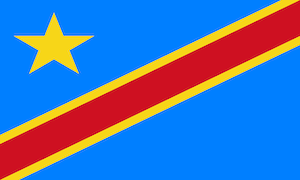
President Felix Tshisekedi described interethnic bloodshed in DRC’s northeast as “attempted genocide” after scores of people were killed and tens of thousands displaced. The leader of the Democratic Republic of the Congo said the violence appeared to be a “plot” and vowed to “find out the truth” about who was behind the deadly unrest. Fighting in Ituri province between militias connected to Lendu farmers and Hema herders has killed at least 160 civilians since June 10, Tshisekedi said on Tuesday at the end of a three-day visit there. Earlier this week, Amnesty International called on the DRC to withdraw its armed forces from the Fungurume mines to overt bloodshed after reports found that the DRC sent approximately a thousand of soldiers to protect Chinese Mining Incorporation.

Following the death of a navy officer in custody over an alleged coup plot, Venezuela’s opposition leader Juan Guaido said on Tuesday there were no plans to restart talks with the “murderous dictatorship” of President Nicolas Maduro. President Maduro has not said how the officer died, but a sixteen-page UN report released this week details the injuries inflicted on the navy captain, “including electric shocks, suffocation with plastic bags, water boarding, beatings, sexual violence, water, and food deprivation, stress positions and exposure to extreme temperatures”. Despite opposition leader Guaido’s statement that there would “never” be a time to negotiate with a “dictatorship” and the UN report, President Maduro was optimistic about future talks with the opposition: there “will be good news in the coming weeks about how well the contact, negotiation and pre-agreement processes are going.”
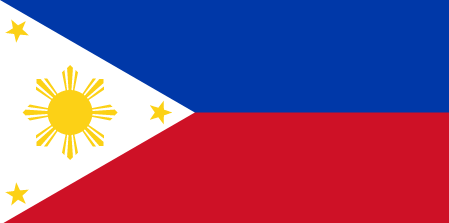
This week in Manila, approximately 2,500 people gathered to honor the 90-year-old widow of the late dictator Ferdinand Marcos and celebrate a birthday party for Imelda Marcos, the former first lady of the Philippines. However, more than two hundred and fifty guests fell ill with suspected food poisoning after the celebratory meal at a Ambulances rushed vomiting friends and supporters from a sports stadium Although Marcos was toppled by a peaceful uprising in 1986, the family is still revered by many in the Philippines and has made a political comeback in recent years.
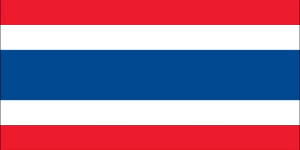
Human Rights organizations have urged Thai authorities to investigate attacks on pro-democracy activists after one was beaten and left unconscious on a pavement last week. Amnesty International submitted open letters to Thailand’s defense minister and its police commissioner on Wednesday asking them to bring justice to the attackers. who have targeted three vocal pro-democracy activists on multiple occasions since the military seized power in a coup in 2014. In the letter, AI asserted that the attacks against the activists “appear to fit a pattern of systemic violence timed to coincide with their efforts to draw attention to perceived election irregularities and problems relating to the formation of a new government”.

Vietnam was a direct beneficiary of the trade-war between the United States and China; however, there were worries that the country might be on the receiving end of the tarifs. To combat these fears, Vietnam signed a “historic” trade deal with the European Union that effectively cut 99% of all tariffs between Vietnam and the EU. On Thursday, President Donald Trump put a 456% tariff on imported Vietnameese steel amid a surge in exports to the U.S. and growing evidence of Chinese and other manufacturers diverting their goods via the Southeast Asian nation to bypass Chinese tariffs. In response, Vietnam Prime Minister Nguyen Xuan Phuc ordered government officials to intensify their crackdown on fraudulently mislabeled products for exports and closely monitor U.S. reactions

President Hassan Rouhani said on Wednesday that Iran will boost its uranium enrichment after July 7 to whatever levels it needs beyond the cap set in the landmark 2015 nuclear deal, defying US efforts to force Tehran into renegotiating the pact. Early this week, Iran announced has stockpiled more low-enriched uranium than is permitted under the accord. While the situation looks more like a disaster than a diplomatic triumph when both the United States and Iran are hitting back, Iranian Minister Mahmoud Alavi was cited by the state-run IRNA news agency as saying “negotiation between Iran and America will take place if the supreme leader gives the permission.”

On Wednesday, Sudan’s protest and opposition leaders resumed face-to-face talks with Sudan’s ruling Transitional Military Council (TMC). TMC and the opposition coalition have struggled for weeks over what form Sudan’s new government should take after the military deposed long-time president Omar al-Bashir on April 11. The meditators of the talk were done by Ethiopian Prime Minister Abiy Ahmed who flew down after talks broke down. After months of peaceful protest and a violent military crackdown, Sudan’s military leaders reached an agreement with the opposition alliance to share power until elections can be held. The two sides agreed to rotate control of the sovereign council for at least three years with the first president being picked by the TMC. They have also pledged to form an independent technocratic government and to investigate the aforementioned violence of recent weeks. News of the agreement reportedly sparked frenzied street celebrations.
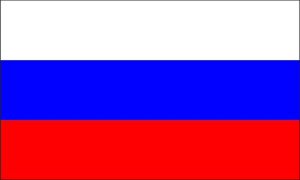
On Wednesday, President Vladimir Putin said that Russia is ready to restart discussions with the U.S. over arms control and that recently there have been signs that Washington is beginning to consider resuming bilateral dialogue on a wide-ranging strategic agenda,” Despite fears that both countries pulling out of the Intermediate-Range Nuclear Forces Treaty (INF treaty) signed in 1987 would lead to an arms-race, both countries have denied that the collapse of a significant nuclear missile treaty between the two nations would prompt an arms race.
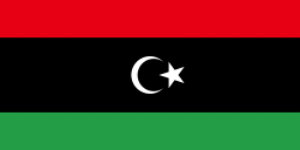
On Thursday, a UN official has said that the attack on a detention centre outside the Libyan capital attack, which killed more than 44 migrants, could constitute a war crime. At least 130 people were injured in the attack, which the Libyan government blamed on an airstrike by forces loyal to a warlord, General Khalifa Haftar. Thousands of migrants are being held in government-run detention centres in Libya. Most of the dead are believed to be sub-Saharan Africans who were attempting to reach Europe from Libya.
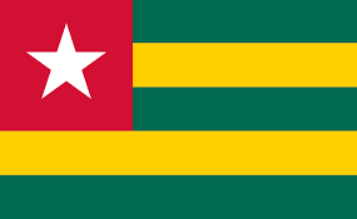
On Sunday, Togo held its first local elections in 32 years where the country’s 3.4 million eligible voters were called to elect 1,527 municipal councilors to six-year terms, renewable twice, in 117 towns. However, most opposition parties are boycotting the election. The West Africa Nation has been governed by a single family for over three decades, and President Faure Gnassingbe stated the elections “mark a major advance in the establishment of democracy.” Gnassingbe has been in power for nearly 15 years since succeeding his father Eyadema Gnassingbe, who ruled the country with an iron fist for 38 years. Turnout was low with the polling stations visited by AFP reporters showing an average abstention of 75 percent.
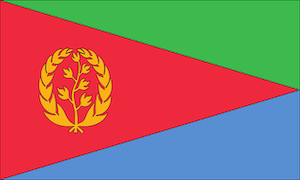
A UN expert said in a report that the human rights situation in Eritrea shows no sign of improvement since it signed a peace agreement with neighboring Ethiopia last year, ending two decades of war. UN special rapporteur lamented that the peace deal failed to bring widespread abuse and violations to an end stating that “the dividends of peace are not yet benefiting ordinary Eritreans, nor are there any signs to suggest they will.” Despite an end to the conflict, Eritreans lack political rights and the government does not allow for dissent.

For the past month, protesters have been demanding the withdrawal of a bill that would allow extraditions to the Chinese mainland. The anger against the bill has grown against Hong Kong authorities and morphed into a wider political crisis. On Monday, a massive peaceful protest in which organizers say more than half a million people marched through the city on the anniversary of Hong Kong’s 1997 return to Chinese rule. However, during the peaceful parade, a much more violent a riot emerge when Hong Kongers stormed and occupied the legislative night clashing with police on Monday night. On Thursday, the Hong Kong police made its first arrest.
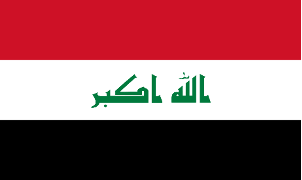
Iraq declared victory over the Islamic State of Iraq and the Levant group (ISIS or ISIL) in late 2017, and has continued to carry out arrests of suspected fighters, The Iraqi government does not provide figures on detention centers or prisoners, but some studies have estimated 20,000 are being held for alleged ISIL links. A recent investigation by the Human RIghts Watch reveals that the conditions for the suspects charged with “terrorism” are held in “degrading” conditions. The government does not allow the suspects to access a lawyer and many have already been charged but are still held in prison for months on end. One prison with a max capacity of 2,500 had over 4,000 prisoners.
Istanbul, Turkey: Hundreds of protestors marched the streets of Istanbul, attacking Syrian shops and residential areas after allegations that a young Syrian boy verbally harassed a young Turkish girl. A group of Turkish youths reportedly damaged several Arab businesses in the Syrian neighborhood on Saturday night before police dispersed the crowd, arresting 18. All 18 were released. Local government officials denied a physical assault had taken place.
Amsterdam, Netherlands: Amsterdam’s first female mayor is facing a battle with sex workers in the city’s famous red-light district after raising the prospect of closing it down. Femke Halsema, a former leader of the national Green party who became mayor last year, is under fire for suggesting that the city “must dare to think about the red-light district without prostitution”.
Xinjiang, China: Thousands of Muslim children in China’s western Xinjiang region are being separated from their parents in what a new study calls a “systematic campaign of social re-engineering and cultural genocide”. The research sheds light on what happens to the children of so-called “double-detained” parents – when both a mother and father have been abducted by the state into what it calls compulsory “re-education” facilities. The UN says China has detained more than one million minority Muslims, mostly ethnic Uighurs, since a dramatic escalation of the policy in the spring of 2017.